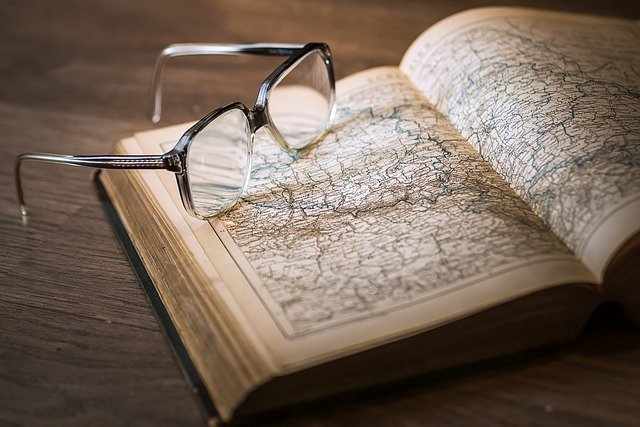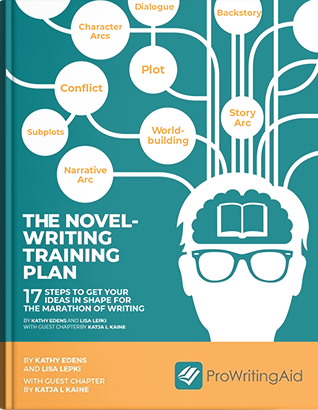
Don’t get me wrong, I love Google. I Google so many things throughout the day. I can’t live without it.
But if you’ve ever fallen down the research rabbit hole, you might have realized that not everything is Google-able, or at least easy to find. It can also be hard to sift out reliable websites on a search engine. SEO matters most, which often bumps incomplete or even incorrect information to the top of the list.
Fiction writers spend a lot of time researching really strange things. It doesn’t matter your genre; we all get caught up on obscure details that may or may not actually matter in the final draft of our novels.
Here are six reliable resources for research that you can turn to when Google isn’t helping.
1. Public Library Databases
I’ve said it before, and I’ll say it again: librarians are superheroes, and libraries are society’s greatest treasures. Librarians are trained in research and databases, and they are always more than willing to help you.
But your library card is also a gateway to powerful research databases. In general, public libraries purchase subscriptions to many online databases, and all you need is a library card. Your librarian can show you how to access these databases and use them to your full potential.
In college, I discovered Academic Search Complete, which is exactly what it sounds like. This database will search many of the journals, periodicals, and books that your institution has access to. Libraries often have a subscription to this database. JSTOR is another common database for finding scholarly resources.
Here are some other types of databases you can access through libraries. This is by no means an exhaustive list.
- legal
- agricultural
- career and vocational
- geography and historic maps
- medical
- historical
- encyclopedias
- scientific journals
- genealogy
- newspaper archives
2. Google Scholar
Okay, I know this is technically Google, but Google Scholar is a completely different search engine. I often use it as a starting place for finding peer-reviewed articles and bibliographies. Google Scholar works much like Academic Search Complete. It searches only scholarly works.
However, many of these articles are still behind a paywall, as is common with academic resources. But it’s easy to find the articles you might need, then head on over to your library databases with a more specific search. (Or call up that nephew in college and have him use his school databases to find it for you!)
Google Scholar will also find titles of obscure and out-of-print books. You might be able to access some of those books through Google Books, but others can be harder to find. That leads me to my next favorite resource.
3. Used Book Sites
It’s always sad when Amazon doesn’t have the book you need. Or they have an obscure title, but they’re charging $120 for it.
ThriftBooks is one of my favorite sites for used books, and I’ve found some random, out-of-print titles for my research for just a few dollars. AbeBooks, which is owned by Amazon, specializes in out-of-print, rare, and collectible books, and they are often selling at much lower prices. There are many others out there, as well.
4. Interlibrary Loan
Okay, Google Scholar has revealed the only researched work on your topic. It costs $200 on Amazon. You can’t find it on any used book site, and your library doesn’t have it. What do you do?
This is where the interlibrary loan service is a lifesaver. Sometimes you can access it on your own through your library website. My library’s ILL is hard to navigate, so I defer to the librarians. They can find the book you need from another library, whether public, private, or university, and have it shipped to their location. Then you check it out with your library card.
My public library has hundreds of libraries in their free ILL network, but you can also pay a nominal fee to get it from other libraries. All of this varies from library system to library system.
5. Museum Archives
Did you know that many museums across the world have much of their collections digitized? Museum websites also have information that can be hard to find elsewhere. Additionally, if you need more information or a picture that isn’t available, you can contact the museum directly. They are often more than willing to send you everything they know about an object or subject.

The Smithsonian Institute, the British Museum, and the University of Pennsylvania Museum of Archaeology and Anthropology are some of my favorites. Art museums can also be valuable resources. I use paintings, drawings, and textiles to get images of daily life for my historical fiction project.
6. National Archives
Many countries have extensive information available to the public through their national archive site. Both the UK and US National Archives are easy to search and full of valuable historic documents that you can’t find anywhere else.
But if you can’t find what you need online, you can also contact the archivist. They might be able to send you copies of the item you need or help you find other resources that you weren’t aware of. Remember, archivists, librarians, and museum staff are in their fields because they care about educating the public. You will usually find them incredibly helpful if you just reach out and ask.
Final Thoughts
What are some of your favorite resources for research? Drop a comment below and let us know!


